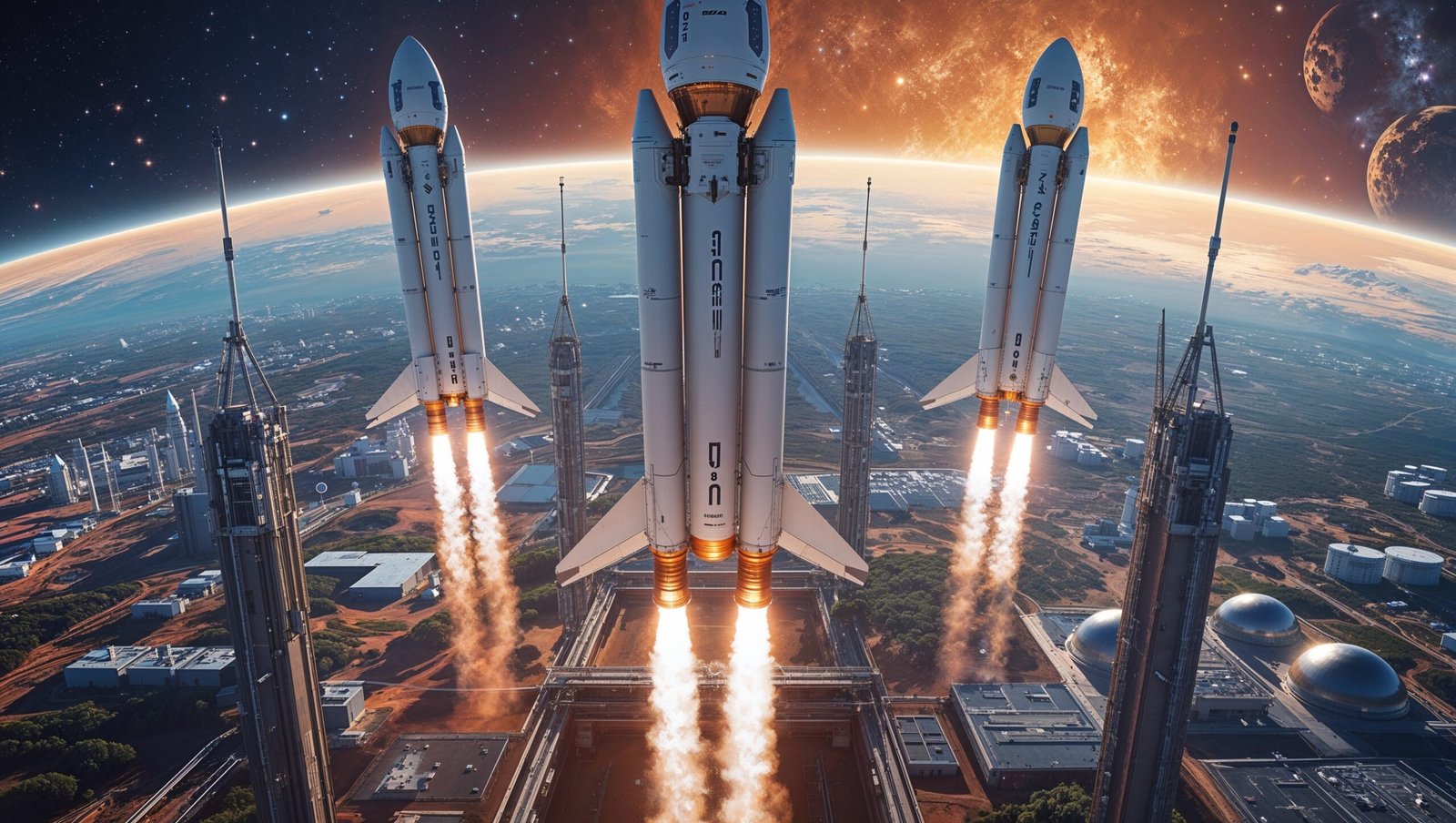The Evolution and Impact of Rockets: A Journey Through Time
Rockets have become synonymous with human ingenuity and the relentless pursuit of knowledge. From their inception as simple gunpowder-fueled arrows centuries ago, rockets have evolved into sophisticated vehicles capable of transporting humans to other celestial bodies. This article explores the historic significance, technological advancements, and the future possibilities of rockets, emphasizing their role in transforming our understanding of both Earth and the universe.
A Brief History of Rockets
The journey of rocketry dates back to ancient China, where the first rudimentary rocket was fashioned. These early rockets, launched during festive and wartime events, represented the first instances of humans harnessing the principles of propulsion. WordNet Insight: In this context, “rocketry” is a hypernym for specific types like “space launch vehicle.”
As centuries unfolded, the concept of rocketry caught the attention of various civilizations, each contributing crucial advancements. The 20th century, however, witnessed the true leap in rocketry, with the development of the V-2 rocket in Nazi Germany. This heralded the age of modern rocketry, leading to the United States and the USSR vying for dominance in space exploration during the Cold War.
Technological Advancements and Milestones
The progress in rocket technology has been nothing short of extraordinary. From thrust-generating engines to heat-resistant materials, every aspect of rocketry has evolved. The advent of the liquid-fuel rocket by Robert Goddard in the early 1900s pioneered a new era, eventually leading to monumental achievements such as the Saturn V rocket that propelled humans to the moon.
Recent innovations include reusable rockets, as developed by companies like SpaceX, which significantly reduce the cost of space travel. These technological strides suggest a future closer to the stars than we’ve ever imagined.
The Impact of Rocketry on Society
The societal impact of rockets extends beyond mere exploration; they have revolutionized the way we live and perceive the world. Satellites, launched through rockets, enable global communications and weather monitoring, ensuring the seamless functioning of modern society. Furthermore, rockets have played a pivotal role in national defense, adding a complex layer to international security dynamics.
The endeavor to explore the cosmos has inspired generations, fueling advancements in STEM (Science, Technology, Engineering, and Mathematics) fields. The arts, too, have drawn inspiration from rockets, symbolizing human aspirations and the quest for the unknown.
Future Possibilities and Endeavors
The horizon for rocketry is as vast as the universe it seeks to explore. Current missions, such as the Mars exploration initiatives, exemplify humanity’s quest to become an interplanetary species. These endeavors are not merely about exploration but are integral to understanding the possibilities of life beyond Earth.
Moreover, the cosmic potential of rockets extends to asteroid mining and space tourism. Such prospects, while ambitious, are grounded in ongoing research and technological progress.
Conclusion
Rockets, the modern-day zweihander, navigate the delicate interplay between Earth’s firmament and the vast expanse of space. Just as jazz represents the improvisational beauty of New Orleans’ spirit, rockets epitomize human creativity and determination. They stand as towering symbols of our capacity for innovation, pushing the boundaries of what we perceive as possible. As new challenges arise, rockets will undoubtedly remain at the forefront of propelling humanity toward a deeper understanding of our universe and beyond.
People Also Ask
- What is the primary purpose of a rocket? Rockets are primarily used for transporting payloads, such as satellites or spacecraft, into space. They are also utilized for military purposes and scientific research.
- How have rockets changed over time? Rocket technology has evolved from simple, gunpowder-based inventions to complex vehicles utilizing advanced propulsion systems and materials. Innovations like reusable rockets have further transformed space travel.
- What role do rockets play in modern society? Rockets enable global communications and environmental monitoring through satellite deployment, contribute to national defense, and inspire technological and educational advancements.
- What future developments are anticipated in rocketry? Future developments in rocketry include interplanetary colonization, asteroid mining, and space tourism. Continuous innovations are expected to make these pursuits feasible.
- Why are rockets important for space exploration? Rockets are essential for overcoming Earth’s gravitational pull, allowing us to send probes, satellites, and human missions into space, thus expanding our understanding of the cosmos.







